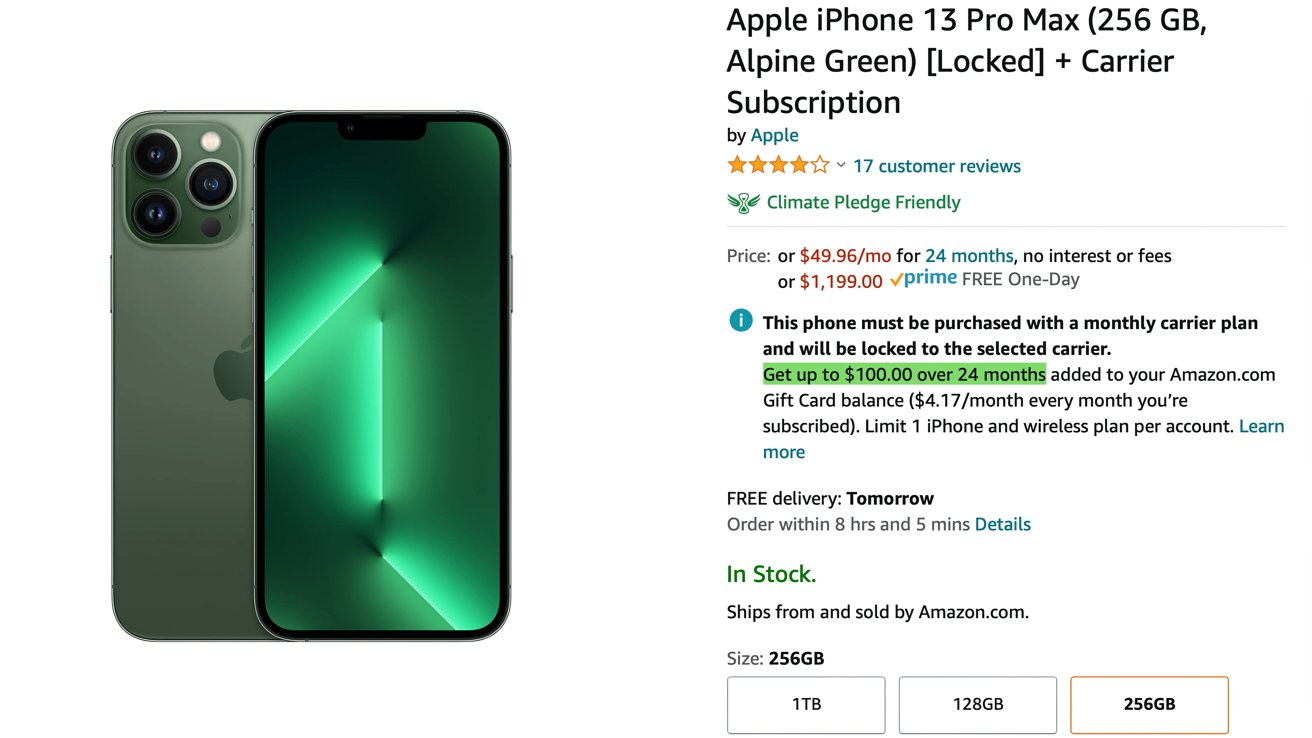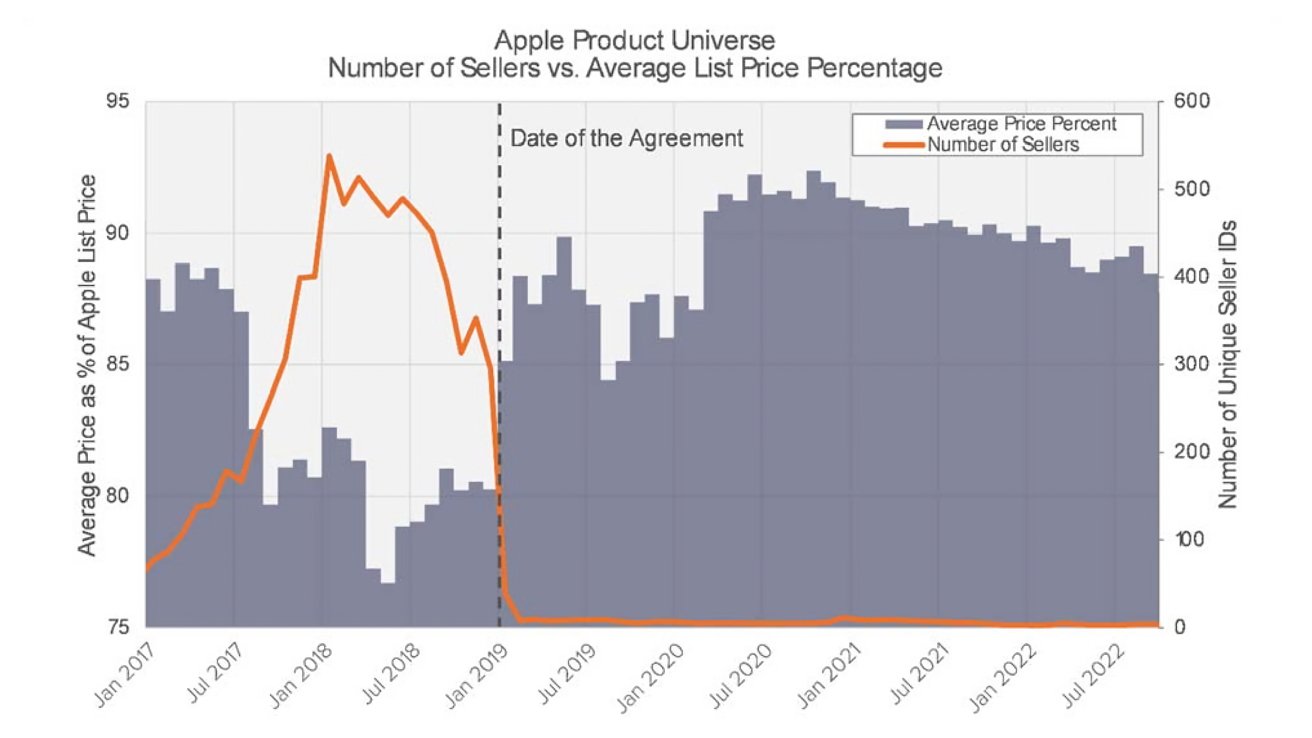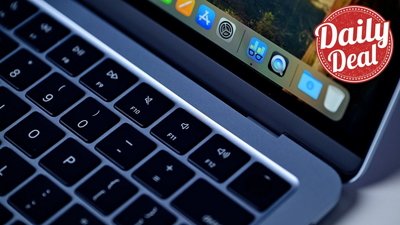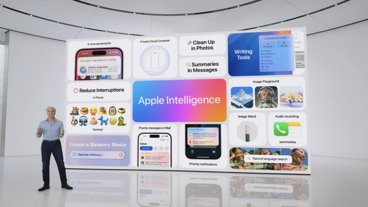A class-action lawsuit against Apple and Amazon accuses the companies of colluding to eliminate third-party dealers, and artificially raise product prices.
The lawsuit is filed with Hagens Berman Law, the same firm that handled the e-book price fixing suit, and others. The defendant accuses Apple of colluding with Amazon to eliminate 98% of Apple product resellers to the benefit of Apple and Amazon.
Prior to an agreement made between Apple and Amazon in 2018, Apple products were only available via third-party marketplaces. The prices were sometimes lower than retail, but products were not always in perfect condition.
By 2019, the number of Apple resellers took a nosedive, reportedly by design. The agreement meant Apple gear could only be sold by resellers authorized by Apple, or those which buy $2.5 million in refurbished inventory every 90 days — a radical change to what was in place before.
The lawsuit says that the number of Apple retailers on Amazon fell by 98%, from nearly 600 resellers to 7. The suit also alleges that Amazon got to benefit from goods being sold at 20% higher prices that they would have otherwise.
"From the outset of these discussions, the parties discussed 'gating' third-party resellers," the lawsuit states. "Ultimately Apple proposed, and Amazon agreed, to limit the number of resellers in each country to no more than 20. This arbitrary and purely quantitative threshold excluded even Authorized Resellers of Apple products."
As with the e-book price fixing suit, the "higher prices" claim is dubious. Amazon nearly always has deep price cuts on Apple hardware, that are often unmatchable by third parties.
The lawsuit aims to reimburse consumers who overpaid for iPads and iPhones affected by this "scheme." It also seeks an injunction to prevent the Apple and Amazon deal from continuing.
Apple is often the target of large class action lawsuits or patent claims due to its size. These kinds of lawsuits can take years to complete, and, even if won, provide only pennies on the dollar to those affected and millions to the attorneys filing the suit.
 Wesley Hilliard
Wesley Hilliard








-m.jpg)






 Malcolm Owen
Malcolm Owen
 William Gallagher
William Gallagher





 Christine McKee
Christine McKee



-m.jpg)




8 Comments
"As with the e-book price fixing suit, the "higher prices" claim is dubious."
The e-book pricing lawsuit was focused on NYTimes bestsellers. Those were the books that Apple/publishers wanted to increase the price on. There was never any dispute about that. They DID want to increase the price for those types of titles. But the price increase didn't apply to the vast majority of e-books being sold in Apple's store.
That said, I'm noticing that this lawsuit is based on pricing from a 1 1/2 year period of time (July 2017 thru January 2019). The pricing PRIOR to that 1 1/2 year period doesn't look all that different from what occurs as a result of the Amazon/Apple deal. And it will certainly be interesting to see what they're basing the "20% higher than otherwise" on. That implies that these resellers had large quantities of genuine Apple products on hand to sell to anyone who wanted one...which doesn't seem that likely, IMO.
Why are we comparing the price of new retail to used retail?
Until the Apple / Amazon deal I rarely found latest version new unopened Apple stuff on Amazon. It was always refurbs or previous generation stuff.